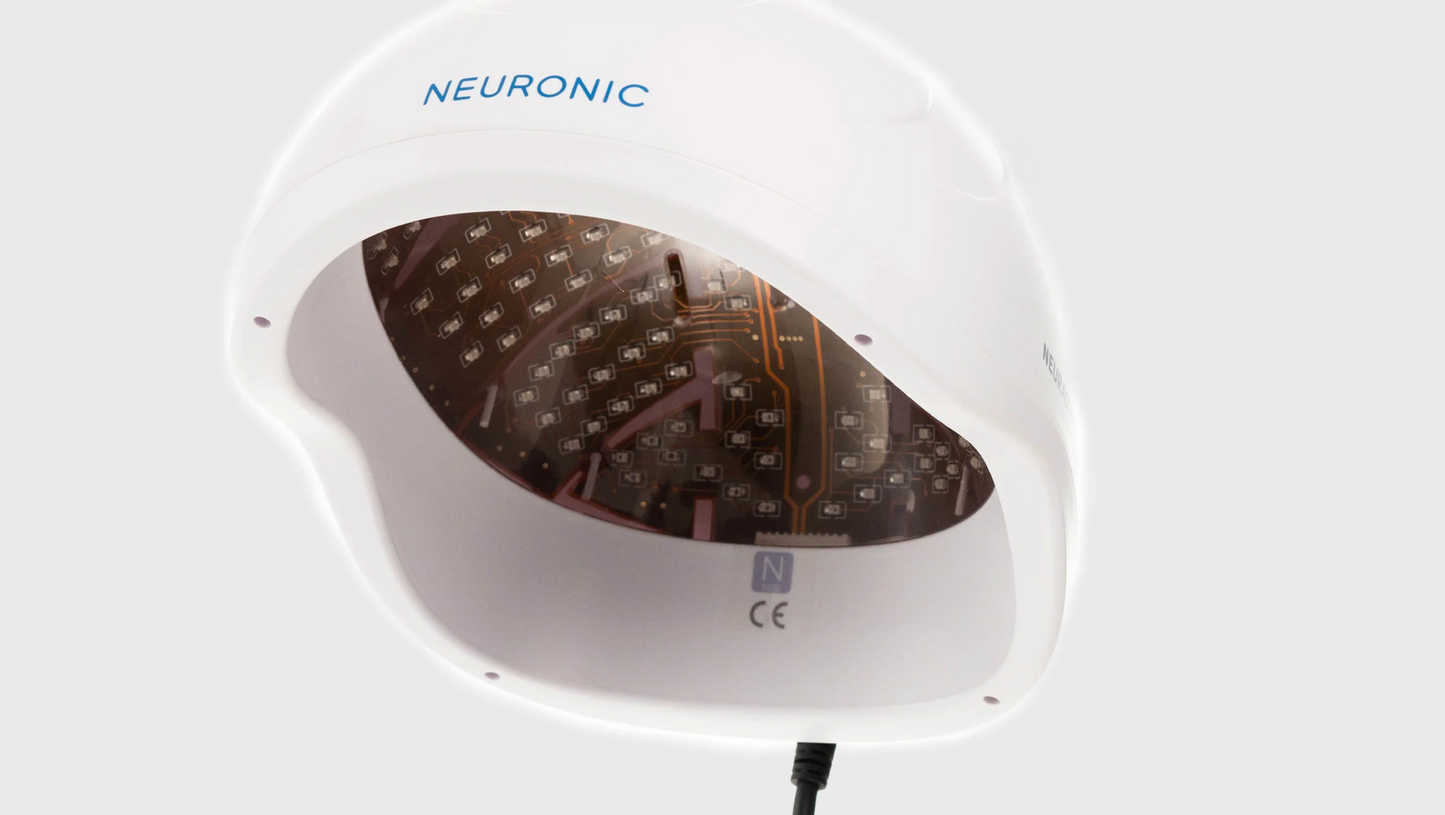
Photobiomodulation (PBM), also known as red light therapy, is a non-invasive treatment that uses specific wavelengths of light, particularly red and near-infrared, to stimulate cellular function and promote healing. In recent years, research has focused on its potential benefits for brain health. PBM at wavelengths between 600 nm and 1100 nm has been shown to penetrate the skull and reach brain tissues, where it can influence cellular metabolism, reduce inflammation, and promote neuroplasticity.
One of the key mechanisms by which PBM benefits the brain is through its effects on mitochondria. Mitochondria are the energy powerhouses of cells, and PBM enhances their function by increasing ATP (adenosine triphosphate) production. This increase in cellular energy has been linked to improved cognitive function, mood, and neuroprotection. A controlled trial by Chan et al. (2019) demonstrated that near-infrared light therapy significantly improved memory and attention in participants with mild cognitive impairment (MCI) compared to a placebo group.
The stimulation of mitochondria through photobiomodulation can also trigger the release of beneficial factors like BDNF (brain-derived neurotrophic factor), which supports the growth and survival of neurons (Hamblin, 2016). This cascade of effects may contribute to improved memory, mood, and cognitive processing, particularly in people suffering from neurodegenerative diseases such as Alzheimer’s or age-related cognitive decline.
Additionally, PBM has anti-inflammatory effects, which may help reduce neuroinflammation—a common feature in conditions such as Alzheimer’s disease and depression. Research by Salehpour et al. (2018) found that patients with Alzheimer’s disease experienced cognitive improvements after several weeks of PBM treatment, highlighting its promise in slowing the progression of neurodegenerative diseases.
A pioneering company in neurotechnology, Neuronic, has dedicated itself to creating devices that harness the potential of light therapy to promote brain function, improve mental clarity, and support cognitive health. This commitment to scientifically-backed tools is evident in their flagship device, the Neuradiant 1070.
Founded by scientists and engineers with a passion for brain health, Neuronic focuses on developing non-invasive technologies that support neurological wellness. The company’s ethos is built on rigorous research and clinical applications, aiming to bridge the gap between technology and brain health with scientifically validated devices (Neuronic, 2023). Their team is driven by a combination of medical expertise and technological innovation, consistently seeking new ways to enhance cognitive function and mental well-being.
A systematic review conducted by Salehpour et al. (2018) concluded that near-infrared light therapy significantly improved memory, executive function, and sleep quality in patients with Alzheimer’s disease, emphasizing the potential of this technology in neurorehabilitation. Furthermore, regular use of devices like the Neuradiant 1070 could be beneficial for neuroplasticity—the brain’s ability to reorganize and form new neural connections—thus supporting long-term cognitive health, particularly in older adults at risk of cognitive decline.
So as neurotechnology continues to evolve, the integration of photobiomodulation into consumer devices like the Neuradiant 1070 represents a significant step forward in non-invasive brain health interventions. With ongoing research validating its effectiveness, this technology could play a crucial role in improving cognitive function, protecting against neurodegeneration, and promoting overall mental well-being which is why I stand behind Neuronic, their science and this device.
Code: DrJena for $100 off at checkout + a 30 minute complimentary consultation!
https://neuronic.online/discount/DrJena
References:
1. Hamblin MR. Mechanisms and applications of the anti-inflammatory effects of photobiomodulation. APL Bioeng. 2016;2(4):41001.
2. Salehpour F, Cassano P, Rouhi N, et al. Near-infrared light therapy for cognitive improvement in Alzheimer’s disease: A systematic review and meta-analysis. J Alzheimers Dis. 2018;65(2):421-432.
3. Neuronic. Neuronic Innovations. Neuronic. 2023. Available from: https://neuronic.com.
4. Chan AS, Lee TL, Yeung MK, et al. Photobiomodulation improves the cognitive function of older adults with mild cognitive impairment: Evidence from a controlled trial. J Alzheimers Dis. 2019;72(3):1083-1092.
*Photo courtesy of https://neuronic.online/
DISCLAIMER: This blog is provided for educational and informational purposes only and does not constitute providing medical advice or professional services. The information provided should not be used for diagnosing or treating a health problem or disease, and those seeking personal medical advice should consult with a licensed physician. Always seek the advice of your doctor or other qualified health provider regarding a medical condition. Never disregard professional medical advice or delay seeking it because of something you have seen, read, or heard in this blog. If you have a medical emergency, call 911 or go to the nearest emergency room immediately. This website or its use creates no physician-patient relationship. Neither the blog, its employees, nor any contributor to this blog make any representations express or implied, concerning the information provided herein or its use.



